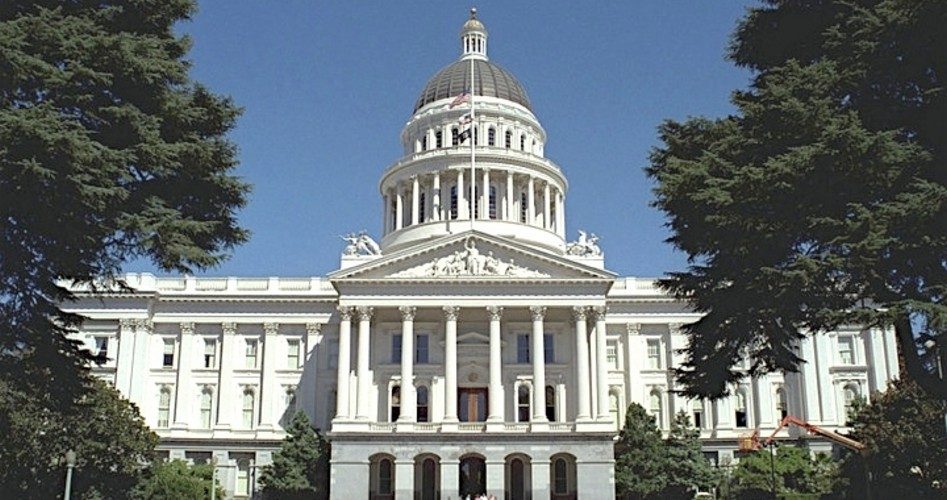
Countering heated opposition from industry groups on Thursday, California’s top air regulator posed an unwavering defense of the state’s pending cap-and-trade system, which intends to limit greenhouse gas emissions through a carbon trading system. During the hearing, which took place in Sacramento, manufacturers and other groups proposed a number of amendments to the law, including one that would give oil refineries and manufacturers one hundred percent of the emission permits they’ll need to yield to the state in 2014.
The current provision provides businesses with 90 percent of the allowances needed to insure their emissions at the outset of the cap-and-trade program. Mary Nichols, who chairs the California Air Resources Board, swiftly shot down her opponents’ request, arguing that it would grant certain companies undeserved “windfall profits” while signaling unreliability to other business that have already invested in new low-pollutant technologies.
“Easing the transition is one thing; leaving the entire industrial sector outside the arena where every other member of society, from forestry to municipal sewage treatment plants is taking aggressive measures to reduce their emissions is just plain unacceptable,” Ms. Nichols countered.
The soon-to-be-launched program will force emitters to purchase allowances under a yearly emissions cap that will gradually deflate over time. The stringent requirements will order many businesses to buy extra credits from other businesses that hold a surplus of allowances — hence the name, “cap-and-trade.”
Opponents of the program flocked to Thursday’s hearing to express their concerns about it, including the detriment it will present for jobs, the advantage for out-of-state competitors, and an overall impediment for California’s already comatose economic state. Dozens of refinery workers, factory managers, and manufacturing groups demanded changes to the forthcoming carbon-trading market, which is slated to launch on November 14.
The supposedly “environmentally friendly” program will slam businesses with a $1 billion-plus annual tax that will deflate economic growth and send companies fleeing from the state, critics asserted. “What we’re concerned about is keeping the jobs,” affirmed Lisa Bowman, who works at a Phillips 66 refinery in the Los Angeles area.
Nichols responded that the pending market will not be excessively burdensome, while she scolded industry lobbyists for requesting changes so near to the program’s inception. “We’ve gone a long way to make these regulations as simple and palatable as possible,” she said, adding that businesses should stop battling the agency and “join us to help us make this work.”
Many California officials were initially anticipating that the state’s carbon trading scheme would catch on and trickle to other Western states; however, not a single other state has agreed to institute any form of a cap-and-trade system. To California businesses, this is a severe impediment, as industries operating in other states won’t be slapped with the carbon limits, leaving Golden State firms at a harsh competitive disadvantage. “We are concerned that out-of-state refiners will have an unfair advantage because they are not being held responsible for their emissions,” Bowman noted.
The California Chamber of Commerce and other industry groups recently submitted a letter to Gov. Jerry Brown (D) pleading for him to halt the program, which will impact at least 500 businesses in the state. “The fact is that this auction represents a multibillion dollar hidden tax that will harm California businesses and consumers by dramatically increasing energy costs at a time we can least afford it,” the letter stated.
Virtually all California residents will fall victim to the carbon-trading system. In response to Democrats’ and President Obama’s 2009 proposition — the American Clean Energy and Security Act — for a nationwide cap-and-trade system, numerous studies have detailed the catastrophic impact carbon-trading would have on both consumers and U.S. businesses.
Reps. Henry Waxman (D-Calif.) and Ed Markey (D-Mass.), two of the leading co-sponsors of the bill, asked the U.S. Energy Information Administration (EIA), the federal government’s official data source on energy, to analyze and determine the bill’s impact on energy prices and the overall economy.
The EIA confirmed that the cap-and-trade bill would be a tax on energy, as the draft report asserted that the “average impacts on electricity prices in 2030 are projected to be substantially greater, reflecting both higher allowance prices and the phase-out of the free allocation of allowances to distributors between 2025 and 2030.” In layman’s terms, the price of energy would have spiked tremendously if the bill would have become law.
Another national cap-and-trade bill, introduced by Sens. John Kerry (D-Mass.) and Joe Lieberman (I-Conn.) in 2010, also prompted a number of studies on the issue. The proposal, which was halted by stiff Republican opposition, would have boosted residential electricity prices a staggering 42 percent and gas prices up about 18 percent, according to a report released by the American Council for Capital Formation and the Small Business Entrepreneurship Council.
Furthermore, the cap-and-trade bill could’ve cost nearly two million jobs while cutting the U.S. gross domestic product by more than $2 trillion, the analysis concluded. “The report makes clear that Kerry-Lieberman would impose additional burdens and hardship on small business owners, who have suffered considerably during this recession,” Karen Kerrigan, president and CEO of the SBE Council, said of the study. “Small business owners cannot create more jobs when costly policies such as Kerry-Lieberman take more of their hard-earned resources.”
The same holds true for businesses and residents of California, who are preparing for an annual billion-dollar energy tax that will further plague the state’s already stagnant economy. Considering the state’s overly burdensome business environment, along with its consistently high tax rates, it’s no wonder companies are heading east for greener political pastures.


